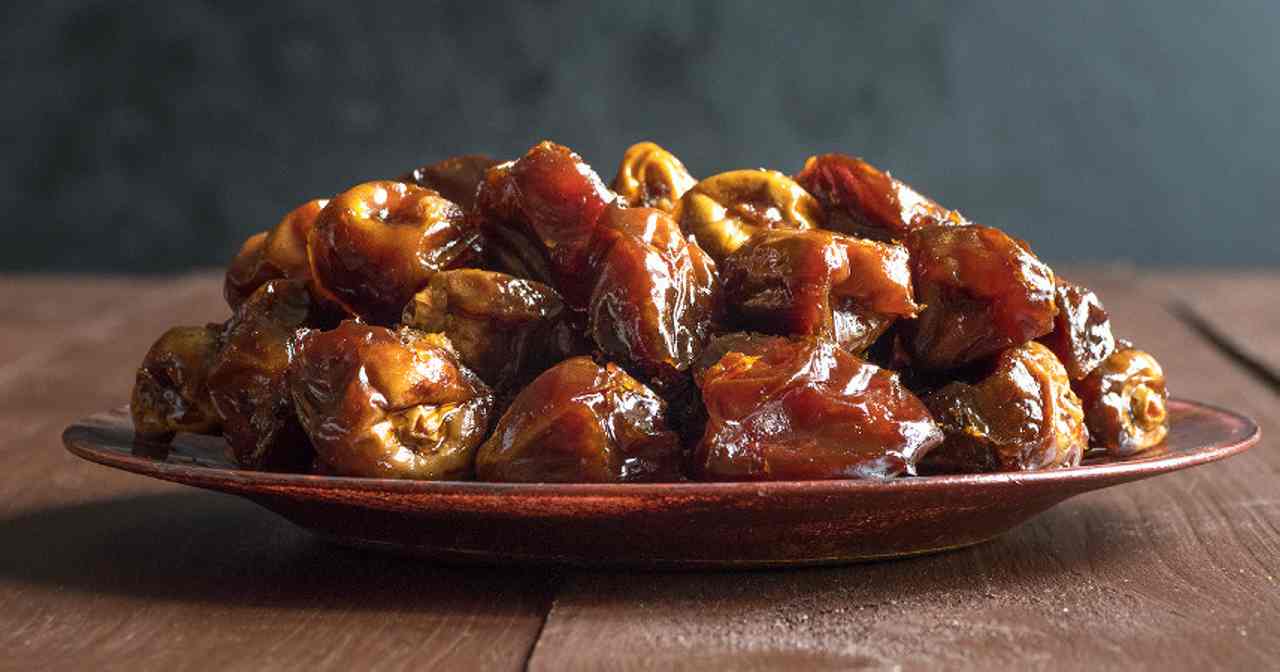
Phoenix dactylifera, commonly known as date or date palm, is a flowering plant species in the palm family, Arecaceae, that is grown and harvested for its edible sweet fruit. Fossil records show that this plant has existed for over 50 million years, making it one of the oldest plants known to mankind.
The plant is believed to have originated in what is now Iraq and has been purposefully grown since ancient times from Mesopotamia to prehistoric Egypt. Today, the Middle East supplies two-thirds of the world’s dates production and yields about 1 million metric tons of dates each year. Egypt is the world leader in date production and cultivation and produces about 17% of the world’s dates grown on a yearly basis.
The fruit is a staple food in Middle Eastern cuisine and is now cultivated in tropical and subtropical climates including North Africa, South Asia, Mexico and some states in America, making it widely available to consumers across the globe.
Although the date palm provides a core ingredient to the Middle Eastern gastronomy, the palm tree family has also possessed a somewhat symbolic reputation throughout history. In the ancient Near East and Mediterranean world, the palm branch represented victory, triumph, peace and eternal life, whilst in ancient Egypt, the palm tree itself was a symbol of immortality. In ancient Greece a palm branch was given to victorious athletes and in ancient Rome, the palm branch was one of the most common features associated with Victoria, the goddess of victory.
There are also some associations between the plant and religion, for example, the Mesopotamian religion considered the palm to be sacred and in the Assyrian religion, the palm is one of the trees identified as the Scared Tree connecting heaven and earth. In Christianity, the palm branch is associated with Jesus’ Triumphal Entry into Jerusalem on Palm Sunday and has since been adopted into Christian iconography to represent victory, whilst in Islam, the meaning of the palm has developed into a symbol of peace and is now often associated with paradise.
Aside from its historically aspirational and symbolical associations, the date palm tree also provides an abundance of nutritional, medicinal, and other health benefits. Dates are rich in many vital minerals including calcium, iron, phosphorus, sodium, potassium, magnesium, sulfur, and zinc, as well as vitamins such as thiamin, riboflavin, niacin, vitamin B6, folate, vitamin A, and vitamin K. The cocktail of nutrients within this fruit means that eating just a few dates a day can help with:
Promoting digestive health
Preventing heart disease
Reducing blood pressure
Anti-inflammation
Reducing risk of stroke
Boosting brain health
Relieving anaemia
Strengthening bones
Increase in antioxidants
And that’s just to name a few.
So how can you incorporate such a small yet vastly advantageous ingredient into your every day?
Dates can be easily integrated into your diet and daily routine whether you are eating them fresh, dried, or using them as an ingredient in the kitchen. They have a long lifespan and can be stored in a cupboard or refrigerator for months so there is no pressure to use them all up straight away. If you are searching for the best quality dates then opt for the ones that are 100% organic and have been grown without the use of any chemical fertilizer (check out Bateel for gourmet dates of high standards).
The fruit can be chopped and sprinkled over cereals, porridge, yoghurt or ice cream; used for baking cakes and desserts; or processed into paste, syrup, jam, jelly, date sugar powder, date vinegar or date alcohol. You can even take the seeds of the date and roast them to try a different flavour coffee, or use the date leaves in a salad or as a vegetable – just in case you thought this plant wasn’t versatile enough.
If you are making your own almond milk, throw a couple dates in the mixture to give it a natural sweetness.
Try this recipe for your morning blueberry, cinnamon and date smoothie.
Follow Jamie Oliver’s suggestion for almond stuffed chocolate dates, or experiment with your own stuffings like lemon peel, candied orange, coconut, tahini or goat’s cheese.
Or try your hand at this meat free version of the classic Middle Eastern dish, kofta.











